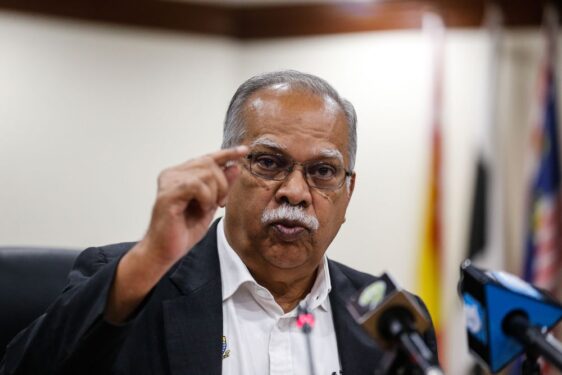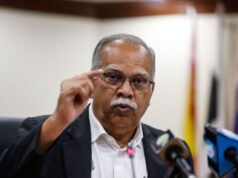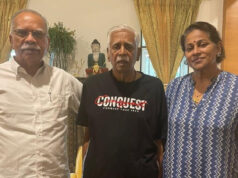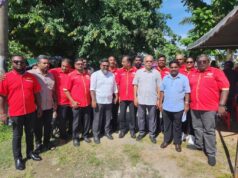 MEDIA STATEMENT BY PROF DR P. Ramasamy
MEDIA STATEMENT BY PROF DR P. Ramasamy
CHAIRMAN, URIMAI PARTY
Rising influence of Hindutva politics: Implications for Malaysia’s Indian Community
The growing influence of Hindutva—the right-wing religious and political ideology associated with some extremist groups in India—on Hindu groups in Malaysia is a topic of increasing concern. While it remains unclear how deeply rooted this influence is, there are indications that some Malaysian Hindu organizations have begun adopting the religious and cultural values espoused by such groups in India. This development carries significant implications for Malaysia’s multi-racial and multi-religious society.
Understanding Hindutva
Hindutva represents a radicalized version of Hinduism that promotes an Aryan-centric narrative. Central to this ideology is the elevation of Brahmins to the apex of the religious hierarchy, tacit acceptance of the caste system, and an attempt to homogenize Hinduism.
Hindutva stands in stark contrast to the religious pluralism that characterizes Tamil and Dravidian Hindu traditions.
These Dravidian traditions are deeply rooted in the ancient Indus Valley Civilization (IVC) and predate the arrival of the Aryans in the Indian subcontinent. The Hindutva ideology aligns itself with the Aryan civilization, often seen as displacing the older Dravidian civilizations.
Historically, the Aryans’ migration from Central Asia led to the marginalization of Dravidian culture in the north and its eventual concentration in the southern regions of India.
Over time, the dominance of Aryan traditions saw the incorporation and appropriation of Dravidian religious and cultural practices into the mainstream Brahminical Hinduism.
North-South Divide in India
The ideological and cultural divide between North India and South India, particularly Tamil Nadu, reflects this ancient civilizational conflict. Tamil Nadu, with its strong Dravidian ethos, has consistently rejected the imposition of Hindutva ideology.
For example, the BJP, often associated with Hindutva, has struggled to gain political traction in Tamil Nadu due to the state’s entrenched commitment to Dravidian ideology, rationalism, and linguistic pride in Tamil—a language with direct ties to the ancient Dravidian script of the IVC.
Efforts to impose Hindi as India’s national language have further alienated Tamil Nadu, where Tamil is seen as a core component of identity and cultural heritage. This linguistic and cultural resistance underscores the state’s opposition to northern political and cultural domination.
Malaysian Context
In Malaysia, where the Indian community is predominantly Tamil, the civilizational divide between North and South Indian traditions has significant implications.
Attempts to introduce or replicate Hindutva politics in Malaysia risk exacerbating tensions in a multi-ethnic and multi-religious society.
For instance, in a recent Tamil Heritage Conference in Penang, a local politician’s suggestion to propose a BJP candidate for Tamil Nadu’s leadership was met with widespread criticism.
Such proposals highlight a lack of understanding of Tamil Nadu’s political ethos and the broader Dravidian struggle against Hindutva. Similarly, the opposition by some right-wing Hindu groups to a Tamil conference in Kuala Lumpur on rationalism in Tamil political thought reveals the growing influence of Hindutva-inspired ideas.
The misguided perception that the conference promoted atheism underscores the dangers of importing divisive ideologies from India into Malaysia.
Danger of Hindutva Politics in Malaysia
Hindutva politics, if allowed to take root in Malaysia, could undermine the Indian community’s unity and Malaysia’s broader social fabric. The emphasis on caste, religious homogenization, and cultural dominance runs counter to the principles of equality and inclusivity that are vital in a multi-racial society.
Furthermore, importing these divisive ideologies could alienate Malaysia’s Indian community from other ethnic and religious groups, fostering mistrust and conflict.
Conclusion
The Indian community in Malaysia must remain vigilant against the infiltration of Hindutva politics. Drawing inspiration from Tamil Nadu’s resistance to Hindutva, Malaysian Tamils can reaffirm their commitment to rationalism, religious pluralism, and cultural diversity.
It is essential for Malaysian Indian leaders to prioritize the community’s unique cultural heritage while promoting unity and coexistence in the context of Malaysia’s multi-racial society.
Hindutva-inspired politics has no place in a nation that values harmony over hegemony.










